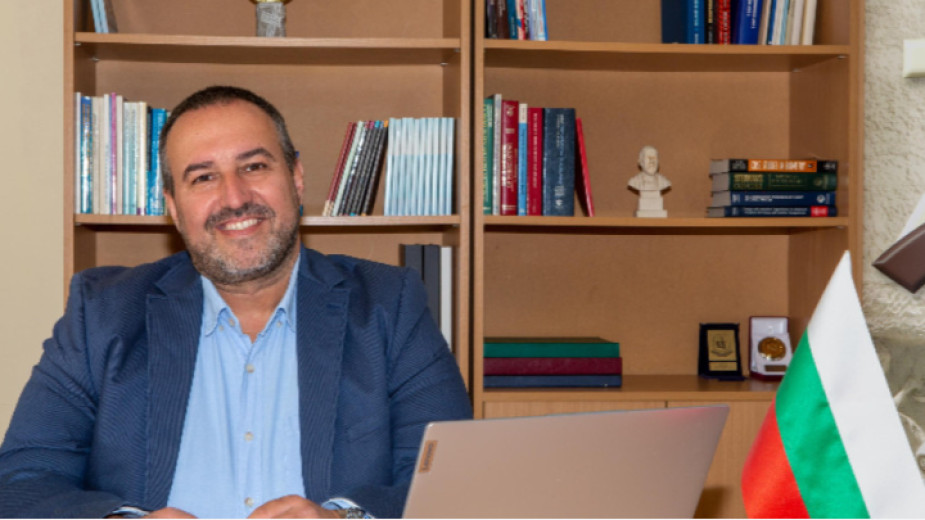The physical and mental health of people, throughout their whole life, is in focus during the days of the European Public Health Week (EUPHW), held in the period May 13–17. The initiative promotes cooperation between medical professionals in Europe, points out the importance of public health and seeks a global approach to solving problems. "Health is a political choice," the campaign tells us, while seeking a different perspective on global issues and encouraging a new generation of health leaders.
But why is the discussion on public health part of the political agenda?

"Health as a political choice means that every action or inaction by politicians has consequences for public health. However, the emphasis must be put on prevention, using modern communication technologies. This is a key in deterring and protecting against rapidly spreading diseases. It saves costs for the healthcare system too," Prof. Dr. Rumen Stefanov, head of the Department of "Social Medicine and Public Health" at the Medical University – Plovdiv says in an interview with BNR Plovdiv.
When we talk about public health, a large-scale problem immediately comes to mind - that of professional burnout. It affects professions of high social importance, such as doctors and teachers. These are people with responsible tasks who strive for a higher qualification and at the same time are devoted to the profession, so they do not have time for good rest and shaking off tension and stress.

According to a study in Bulgaria conducted by the "Podkrepa" trade union, teachers are the most affected by burnout. The union also reports that in Bulgaria the problems of burnout among teachers are underestimated and there are no targeted measures for prevention and rehabilitation. Therefore, they advise everyone to do their own self-diagnosis and limit overloading with stress factors. "A person must be able to be useful first to themselves, to their family, and from there on to be in condition in his profession," psychologist Kiril Kunchev told BNR-Vidin. However, it is important to distinguish between stress and a state of professional burnout:
"Stress is a temporary reaction, most often associated with a specific event in our lives. We experience stress when our mental, physical or emotional reserves exceed our own comfort level. Burnout is a reaction to prolonged and excessive stress that leaves us in a state of physical and mental exhaustion. It causes a cynical attitude towards our work and the people associated with it. We become less effective and more distant from the work and the people around us. When we experience burnout, we often do not believe that the situation can get better and we sink into a sense of hopelessness."

Burnout is much more than feeling overtired. The specialist summarizes the symptoms of this dangerous phenomenon for our health:
"Manifestations of burnout are related to the appearance of a feeling of loss of energy, or emotional exhaustion. Here comes the feeling of negativity and cynicism related to work, as well as reduced professional efficiency. The first symptoms are those of emotional stress - physical fatigue, insomnia, a sense of guilt. However, when the condition is complicated, there is reluctance to go to work, loss of self-control, increased aggression, disturbed eating habits, alienation. Migraines are possible, as well as heart-related chest pain and exacerbation of various chronic diseases. Gradually, interest decreases not only in professional activities, but also in various hobbies. A person shows indifference even to his appearance and to the lives of his loved ones."

Professional burnout is a condition with causes and symptoms linked solely to the workload at work and improperly managed and controlled stress, the expert says in conclusion.
Compiled by: Gergana Mancheva / based on interviews by Zhivka Tancheva, BNR-Plovdiv and Victoria Topalska, BNR-Vidin/
Publication in English: Al. Markov
Photos: Pixabay, BNR-Plovdiv, Pexels
October 17, 2025 will go down in history as the date on which the Minister of Culture of Hungary presented the document with which the Tradition of Bulgarian Gardening in Hungary officially entered the UNESCO National Register of..
The center of Bulgaria's town of Asenovgrad is today turning into a colorful scene of flavors, aromas and traditions, in which the spirit of the Red Wall Biosphere Park comes to life , reports BNR's Radio Plovdiv. At the “Festival of Crafts and..
"Folklore is a need for humans and this need will not disappear just like that, " says Assoc. Prof. Dr. Natalia Rashkova - ethnologist and folklorist, university lecturer and researcher with a strong contribution to the study of..
Veliko Tarnovo is hosting the Urban Wine Fest, organised by the Bulgarian Association of Wine Professionals. "October is the month of Bulgarian wine and..
Sofia is hosting the finals of ER Champ 2025 — described by the organisers as the world’s largest international escape room competition . Taking place on..
More than 500 people from across Bulgaria are gathering today in the village of General Todorov, near Petrich, for the national festival “Once Upon a..

+359 2 9336 661
